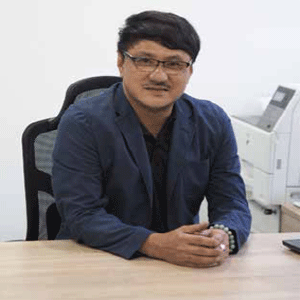
With the world discarding at least $62.5 billion e-waste annually (as per UN Report), e-waste is one of the fastest-growing waste streams on Earth. E-waste releases toxic fumes when burnt and its chemicals can also seep into the soil and pollute waterways. Recycling electronic waste (e-waste, sometimes called e-scrap) has thus become an increasingly important environmental issue as the useful life of electronic devices becomes shorter and the list of electronic gadgets we use becomes longer. Recycling benefits are numerous and the need to address e-waste items in the solid waste stream is becoming more urgent.
This has thus given rise to an increasing number of companies playing a role in managing e-waste. Singapore-based Se-cure Waste Management (SWM) is an example of one. SWM is one of the few local enterprises approved by the Singapore National Environmental Agency (NEA) to handle the recycling of electronic waste into a form which is readily transformed into new raw materials through a proprietary mechanical transformation process. “We are by far one of the few enterprises in Singapore handling large scale lithiumion batteries (EV batteries inclusive) recycling process locally. Our vision is to create and se-cure a greener environment for our future generations and we remain committed to our vision,” says Willie Ong, Founder at SWM.
Recycling, Recovering and Repurposing
SWM is an electronic waste disposal solution provider for resource re-cycling, re-covering, and re-purposing, creating sustainable resources for the environment. In the absence of a proper disposal solution, lithium-ion batteries will contribute to environmental pollution and adverse human health impact due to its potentially hazardous materials contained. The precious metals within these lithium-ion batteries would be permanently disposed when they could have been up-cycled for new uses.
SWM is the essential downstream service provider for electronics producers who choose a responsible disposal method. Lithium-ion batteries compose of metals including cobalt, nickel, lithium and manganese. At the end of life, the battery goes through the recycling process. This processed material is known as “black mass”, consisting of amounts of cobalt, nickel, lithium, and manganese. These precious metals can be extracted.
The team at SWM repurposes by separating and sorting of recoverable metal waste/scrap. Then uses a proprietary mechanical transformation process to produce secondary raw materials (a form readily transformed into new raw materials). The output produced by the end of this production process is known as black mass - a ready product to be up-cycled for industrial use. The primary service of SWM is electronic waste solutioning. This represents a complete customer fulfilment order process that begins with joint inspections and evaluations with customers/ stakeholders to understanding their unique business needs when it comes to responsible disposal, working closely with smelting plants and local scrap dealers to appropriately manage the disposal process (including SWM’s proprietary battery recycling process, and determining secondary usage of EV batteries for those requiring less energy density usage), providing customers/ stakeholders the peace of minds that their electronic waste has been taken care of in a compliant and transparent manner.
Innovation with Sustainability
SWM is consciously seeking to reduce its carbon footprints emitted to the environment. “We are reviewing innovative approaches to actively reduce our operational energy density/intensity and embarking on our trajectory calculation on our absolute carbon emission and adopting a science-based approach to reducing that impact,” says Willie. Further, the company is continuing refinement studies and driving local innovation through strategic collaboration(s) with institutions of higher learning in Singapore on its extraction technology to transform waste into readily available raw materials for batteries manufacturing as a way to achieve resource sustainability. An audacious effort has also been taken by the team at SWM to provide further refinement to the current extraction process. Pending patents, SWM and its strategic collaborating partners are launching laboratory trial pilot electrochemical and organic hydrometallurgy processes within SWM’s premises to further review commercial viability and evaluate process scalability.
Poised to lead the forefront for battery recycling innovation, SWM aims to offer to its diverse stakeholders environmentally friendly e-waste management solutions that meet the unique needs of businesses
Poised to lead the forefront for battery recycling innovation, SWM aims to offer to its diverse stakeholders environmentally friendly e-waste management solutions that meet the unique needs of businesses. Waste today, precious resources tomorrow. “Our momentum for the future can be reflected through the multiplicity of efforts we are making today within SWM and in Singapore. We remain committed to delivering our vision, accelerating our progress to ensure local community adaptation, adoption and engagement as we continue to drive local awareness, participation and involvement,” concludes Willie.
Willie Ong, Founder, SWM.
Before devoting his work full time with SWM and being one of the managing partners of SWM, Willie has devoted 90%of his career in the consumer electronics and electrical segments. From a rank-and-file individual to a self made entrepreneur, Willie comes with more than four decades of extensive industrial experience both commercially and operationally in handling the e-waste customer fulfillment process. Besides handling e-waste, Willie also came together with a few likeminded local entrepreneurs in Indonesia to provide logistics & distribution services for the garments and IT hardware businesses within Asia.
We use cookies to ensure you get the best experience on our website. Read more...